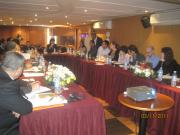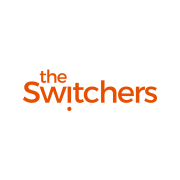

Subscribe to SCP News
BAT4MED is officially presented through National Workshops

The first workshop was organized on November 3 in Casablanca (Morocco) by CP/RAC and CMPP, as local partner of the project. Mrs Hanan Hanzaz, director from CMPP welcomed participants and gave the floor to other speakers. Representatives from IAT and CP/RAC introduced the project; SSSUP was responsible for presenting the results of the sector analysis and VITO explained the advantages and opportunities offered by the project. CMPP showed the context for dairy and textile sectors in Morocco. The special intervention of M. Farid Djekmani, representative from the Moroccan Ministry of Environment, enabled participants to understand better the current legal environmental situation in Morocco. While participation was limited to 20 people, participants were extremely active and showed great interest for the project.
Second National Workshop was held on November 15 in Tunis (Tunisia), in CITET premises. CITET is the Tunisian local partner of the project and was responsible, jointly with CP/RAC for the organization of the workshop. Mr. Mohamed Moncef Chaabouni, general director of CITET, welcomed the 50 participants. During the workshop presentations given by IAT, SSSUP, VITO and CP/RAC followed the same structure of the workshop held in Morocco. The regulatory framework in the country was explained by Mrs. Imen Ben Soyah, Administrator Adviser in CITET. The local leaders for the technical working groups, from CITET, showed the status of the dairy and textile sectors in the country. Mrs. Naouel Mejri, Responsible of Technical Assistance Direction in CITET was in charge for the closure of the meeting.
On November 17, third and last National Workshop was held in Cairo (Egypt) in Cairo House facilities, organized by EEAA, as local partner and CP/RAC. Welcome was given by Mr. Hossam El-Din Hussein Ali Hegazi, Chief Executive Officer from EEAA to more than 50 participants. While presentations of European partners of the project followed the structure and contents of the other two workshops, the regulatory framework and the background of the status of dairy and textile sectors were explained by Dr. Shadia Elshishiny, external expert from EEAA.
In 2013 three more workshops will be held in the Mediterranean Partner Country to explain the progress and goals achieved by the project and to raise awareness among key agents in the countries on the competitive and environmental benefits of using BAT in the industrial sector, as well as on the need to enhance their implementation to prevent and control pollution coming from Mediterranean industrial production processes. Project results will also be disseminated to national workshops in 6 non-partners Mediterranean countries involving policy makers, and public authorities, industry representatives, NGO’s and other interested actors.














